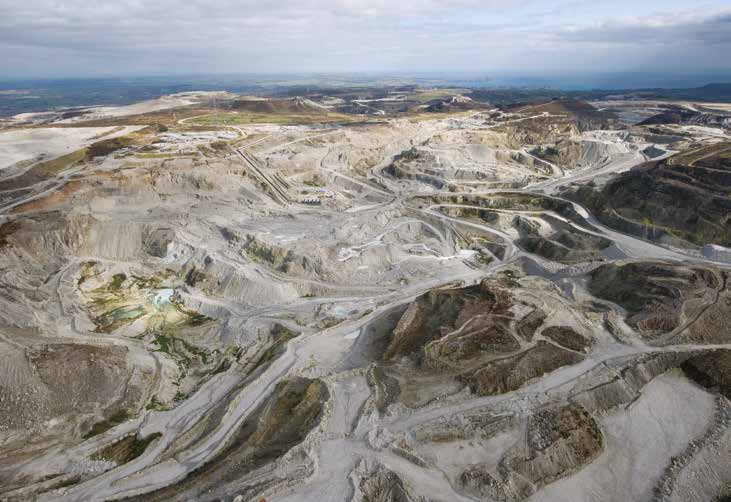
In an edition of Rural Newslink published some years ago, I wrote about the move to register mineral rights, regardless of the fact of the long-term decline in the mining industry in South West England. Things have certainly moved on and I was recently privileged to attend the Centenary Dinner of the Cornish Chamber of Mines & Minerals.
At that Dinner, much was said about the resurgence in mining in Cornwall and West Devon, with a number of significant projects now either up and running or attracting serious investment. In particular, we have seen the development of Hemerdon Tungsten Mine, as well as the progress which has been made by Strongbow Exploration at South Crofty Mine.
There have been a number of other projects besides, such as at Redmoor in East Cornwall; and the new initiative proposed by Cornish Lithium. With all of that activity, it is not surprising that there has been an increased focus of late on the ownership of mineral rights.
Do you own the surface land and the mineral interests?
This was brought home to me recently by a landowner client, who was aware of talk of prospecting for minerals on nearby land. This had prompted him to think about his own land and who might own the minerals, being aware of earlier publicity surrounding the large-scale registration of mineral rights by the Duchy of Cornwall. In this case, the land in question was well away from any of the Duchy’s interests but the question still remained as to whether this particular landowner client owned not only the surface land but also the minerals interests in it, or if there was a third party owner of those mineral rights.
As I was already familiar with his land, I looked out what I recalled as being the registered titles to it.
These were not helpful, as they were silent on the subject of mineral rights.
This might lead to the conclusion that the mineral rights went with the land. However, given the land was in a district which had experienced some historical mining activity, from
experience I was aware this was not a conclusion which might sensibly be drawn without further enquiry.
Pre-registration deeds and documents
I therefore spoke with the client, to ask if he knew anything of the pre-registration deeds and documents, on which the registered titles to land were based.
Fortunately, given the long family association with the land a couple of boxes of old deeds/conveyances duly arrived! With a little research, it was then possible to identify the
chain of title to the farm nearest to the area of interest to the prospectors. From this it became apparent there was a 19th Century Conveyance containing an exception and reservation of mineral rights, in favour of the then current representative of a well-known Cornish landed family.
From my client’s perspective this was not welcome news. However, the ‘devil is in the detail’ with such old documentation. It was clear from the wording (very carefully set out in copperplate handwriting) that the surface owner, on suffering damage, destruction or loss as a result of mining activity founded on the reserved mineral rights, was entitled to proper compensation for such losses.
Indeed, the wording followed a familiar pattern common to many such 19th Century documents and of which the view is generally taken that it is safe to proceed to acquire such land without the mineral rights being included, on the understanding such a provision for compensation is considered sufficient in the ‘market place’ and by those advising purchasers.
Therefore, whilst not being overly happy with the potential long-term ‘threat’ to their family’s land, there was some comfort to be gained from the knowledge that if the worst occurred, proper compensation would be payable.
Conclusions
In a time of increased interest in and activity around the exploitation of mineral rights in the South West, it is just as well to know whether they are owned by the surface owner or a third party ‘mineral lord’. Additionally, whether or not compensation would be payable in the event of mining occurring and resulting in the destruction of the surface of the land, as often happened in the past.
If you were to require any assistance in this respect then Stephens Scown has a long association with mining and minerals related matters and it is very well placed to advise.
Scott Mitchell is a partner based in the real estate team in Cornwall and a member of the rural sector team with considerable experience of advising those with mining and land interests of all kinds. If you have a question about mineral rights please contact Scott and the team rural@stephens-scown.co.uk or 01726 74433.
For more information about Devon Young Farmers visit www.devonyfc.co.uk
This article was first published in our rural newsletter Newslink.
Click here to join the mailing list

